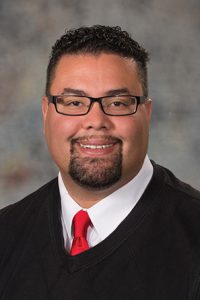Economic recovery proposal amended, returned to final reading
A bill on final reading that would direct federal and state dollars to pandemic recovery efforts across the state was returned to select file and amended April 7.

As amended on general file, LB1024, introduced by Omaha Sen. Justin Wayne, would allocate $250 million of the federal American Rescue Plan Act funds provided to Nebraska. It also would create the Economic Recovery and Incentive Division within the state Department of Economic Development to administer grant funding.
In addition, LB1024 would transfer $55 million from the state’s Cash Reserve Fund and place it, along with $80 million of the ARPA funds, into the newly created Economic Recovery Contingency Fund.
The bill would create the Economic Recovery Special Committee of the Legislature to review proposals for distribution of those funds. The committee would include the chairpersons of the Appropriations and Urban Affairs committees, the speaker of the Legislature and four other senators who represent legislative districts containing one or more qualified census tracts located within a metropolitan class city. Omaha is the state’s only metropolitan class city.
The remaining $135 million would be distributed in fiscal year 2022-23. Up to $55 million would be available to provide grants through the newly created Qualified Census Tract Recovery Grant Program to provide funding to public and private entities located within qualified census tracts.
A federally qualified census tract is one in which 50 percent or more of households have an income less than 60 percent of the area median gross income or a poverty rate of at least 25 percent.
No less than $35 million would go to qualified census tracts in North and South Omaha. The grant program would be augmented by $30 million in state general funds over the next three fiscal years.
The bill also would direct at least $60 million for development of an airport business park in Omaha, $30 million to innovation hubs located within two miles of the same airport and $20 million to prepare land parcels for affordable housing.
A total of $30 million would be available for affordable housing projects in Lincoln, as well as $5 million for a lost revenue program for the Lancaster County Event Center, $3 million in tourism development grants across the state and a few smaller projects.
Wayne offered an amendment after the bill was returned to select file that would reduce funds available under the Coronavirus Capital Projects Fund for affordable housing from $40 million to $35 million, limit administrative costs for the fund to $5 million and restrict grant applications to eligible projects in qualified census tracts. Applications from a metropolitan class city working with a nonprofit to rehabilitate or expand existing multipurpose community facilities would be prioritized.
The amendment also would appropriate $10 million in ARPA funds to DED for administrative costs and would prohibit the department from using state general funds to implement or administer grants.
Wayne said that provision would enhance accountability by ensuring adequate staffing and oversight at the department when awarding grants.
“We are actually reducing the amount going to North and South Omaha to pay for the accountability piece,” he said. “We’re reducing our part because we think accountability to [the Legislature] is more important.”
The amendment also would specify that no less than $40 million would be available for grants in the 1st Congressional District and the 3rd Congressional District. In CD3, grants would be available to second class cities and villages only.
Henderson Sen. Curt Friesen supported the provision, saying it would help small Nebraska towns that have been “ignored” in other coronavirus recovery efforts.
Following adoption of the Wayne amendment on a 45-0 vote, senators advanced LB1024 to final reading on a voice vote.

